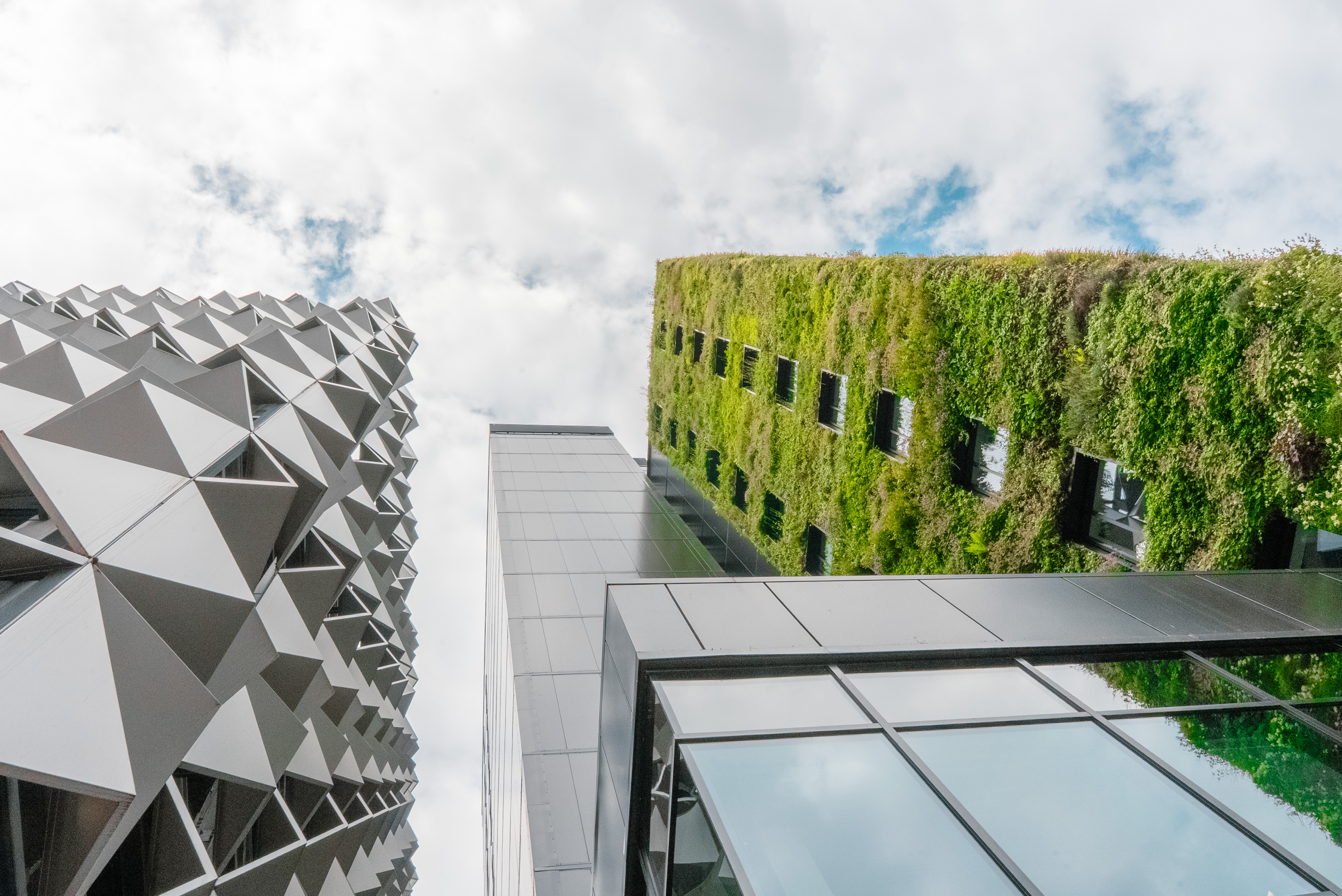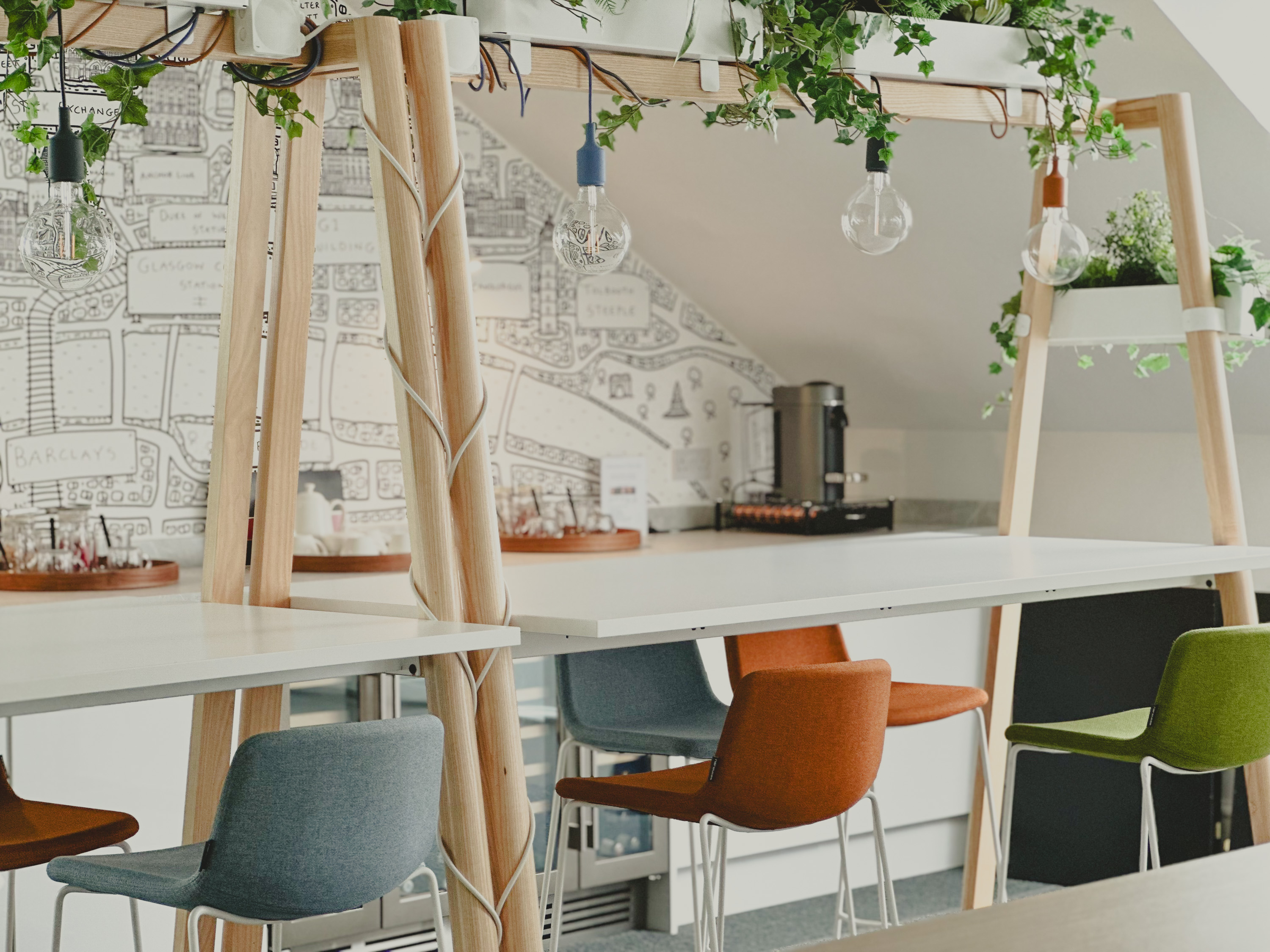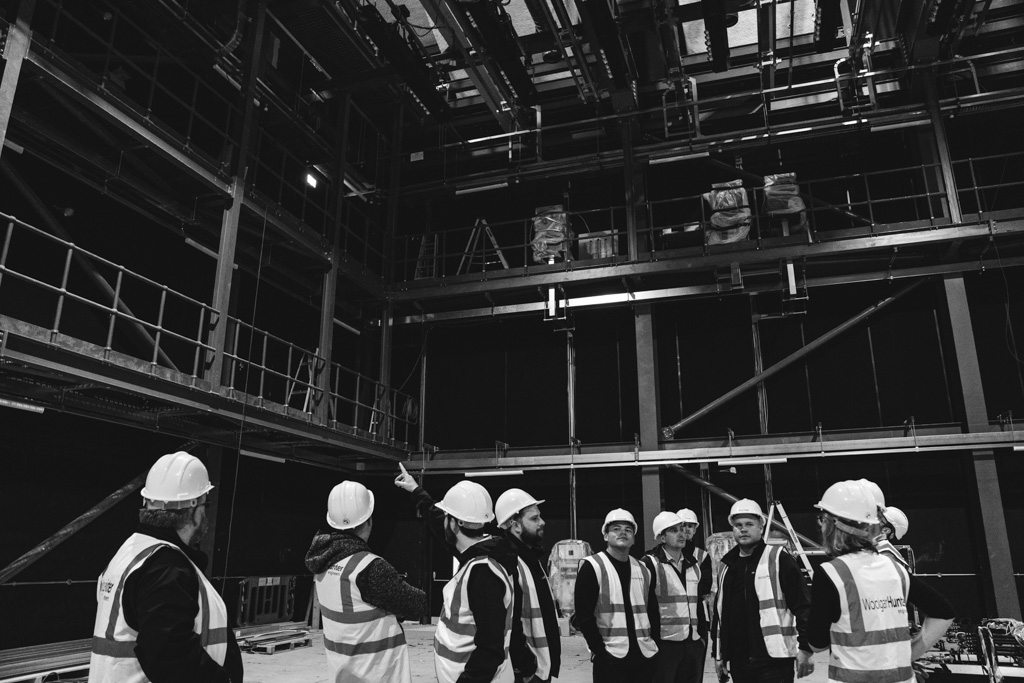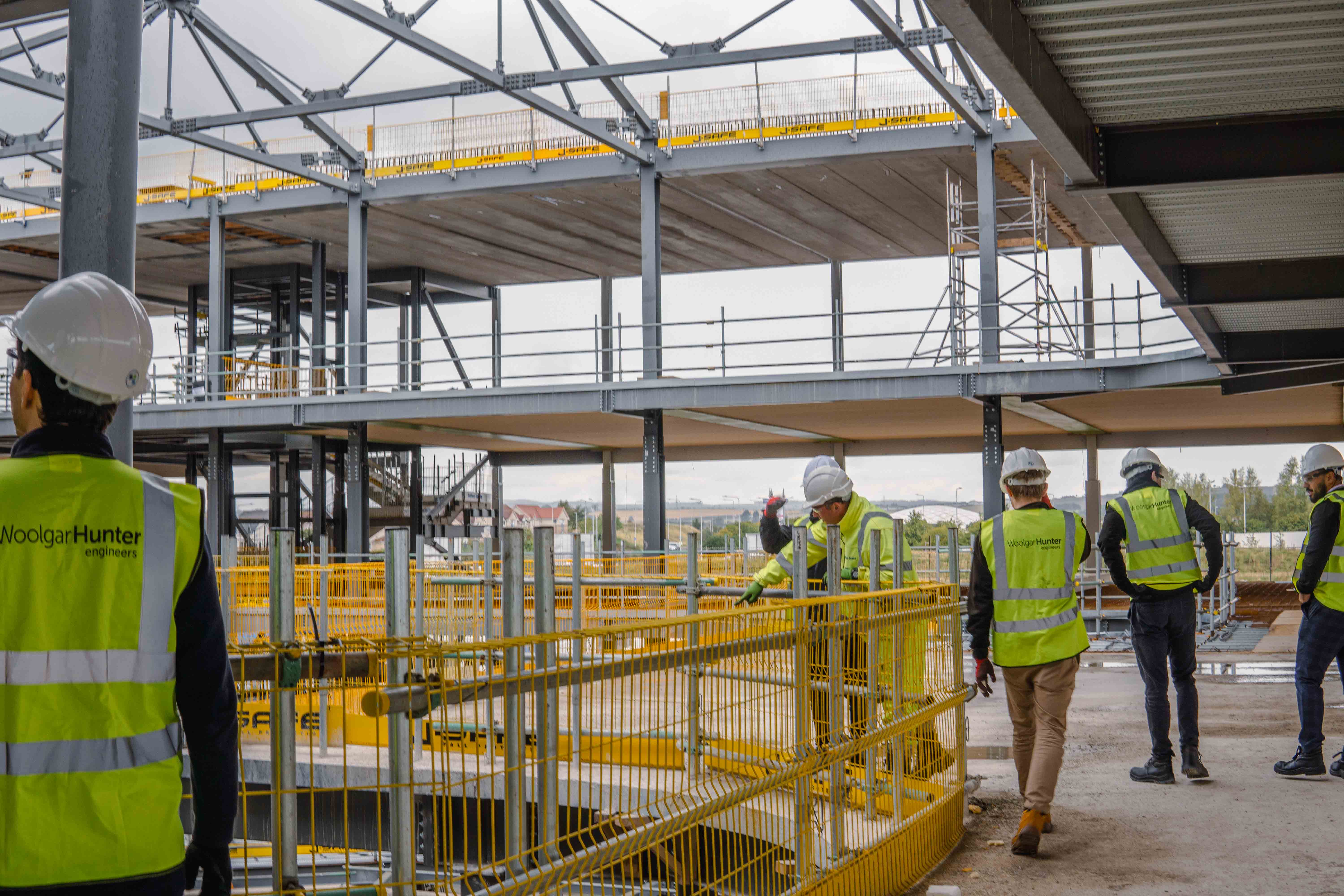
Our Journey to Net Zero
At Woolgar Hunter, we are committed to engineering a sustainable future through innovative structural engineering solutions.
We believe that the only way forward in tackling the climate emergency is to get everyone involved. With construction accounting for 40% of greenhouse gas emissions, Woolgar Hunter is committed to producing sustainable, responsible engineering solutions.
→ Carbon Talks
 Woolgar Hunter Breakout Space, Glasgow Office
Woolgar Hunter Breakout Space, Glasgow OfficeOpportunities to Connect, Learn & Share
We know that the climate crisis will not be tackled alone and sharing best practice is crucial to improving industry standards. Woolgar Hunter hosts regular Business2Business events and discussions to share our knowledge with peers and learn from their work. If you'd like to join us for an event like this, get in touch.
We love to host.
We have a great space to host a group for networking and presentations. We’ll supply the pizza and beers.
We'll come to you
We love to talk about all things engineering, and we’re more than happy to present in your offices.
Lectures
Our team is enthusiastic about sharing real-world experience, lessons learned, and emerging best practice.
→ Our Approach

Assessment & Reduction
Our engineers have conducted extensive research into carbon assessment and reduction, allowing us to improve the sustainability of our practice from the outset of a project.
By closely monitoring the embodied carbon in our designs, we can benchmark against previous designs and industry targets such as RIBA / LETI or specific funders’ targets. Additionally, we can supply our data to the sustainability consultant to allow the whole building targets to be assessed.
Retro First
The greenest building is the one that already exists.
Woolgar Hunter has extensive experience in refurb and retrofit projects, and we use this to help clients consider how their existing buildings can be adapted or expanded to produce modern accommodations without the carbon costs of demolition and newbuild.

Retro First Case Study:
BBC Studios at Kelvin Hall
We approach each new project is an opportunity to reverse the climate crisis.
Woolgar Hunter was appointed by a partnership of Glasgow cultural organisations to reengineer a major refurbishment of Kelvin Hall, the iconic 1920s exhibition hall in Glasgow’s west end. The new mixed-use development provides a range of cultural and civil spaces within the historic building, restoring it to its position at the centre of Glasgow’s cultural life.
→ Sustainable Infrastructure & Drainage Design


the Public Realm
Bioretention
Innovation in Sustainable Design:
Fife College
Fife College campus in Dunfermline is the first building designed to the new Net Zero Public Sector Building Standards for Scotland. Unique structural design features have contributed to a 25% reduction in embodied carbon in the scheme.
→ Project Highlights


